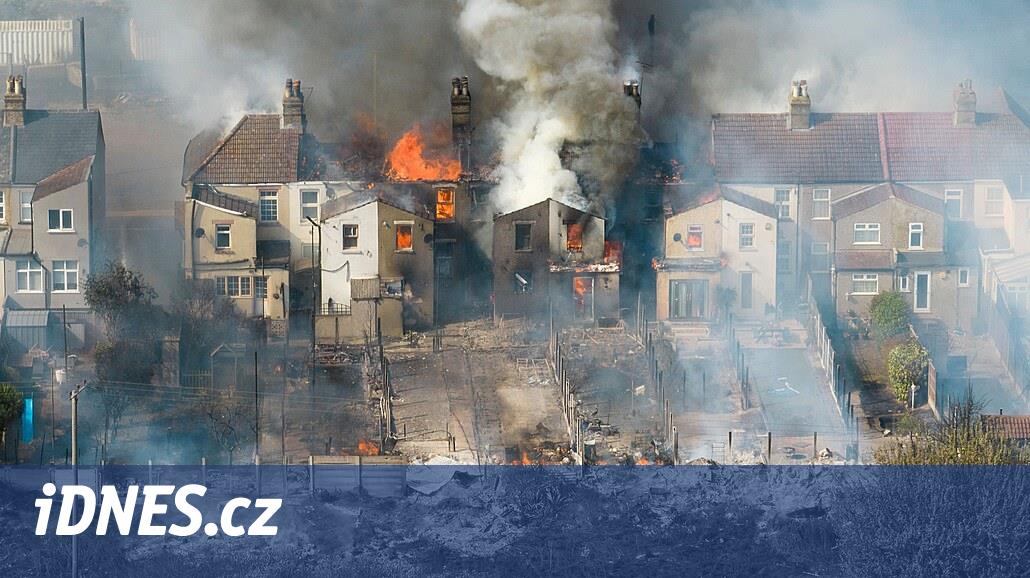On Tuesday, firefighters responded to 2,600 calls for help related to record warm weather. Britain recorded temperatures above 40 degrees Celsius for the first time. Typically, firefighters receive between 350 and 500 requests on a busy day.
Firefighters have been battling a number of blazes in London and the surrounding area. At one point, the brigade was called to 12 major fires at the same time.
The worst situation occurred in the village of Wennington, which is part of the London Borough of Havering. The fires here scorched about 40 hectares of grassland and a number of houses. One firefighter described the situation as “absolute hell”. Firefighters were also assisted by farmers who sprayed water from their tractors.
Due to the great fire, people did not have time to collect even the most basic items. “I didn’t take my driver’s license or birth certificate, there was nothing, so I lost everything, photos, records. Everything’s gone,” he says Timothy Stock, sixty-six, who lived in his great-grandfather’s house for 41 years.
Sword Time described that people were seen on the street carrying their pets in cages which they managed to protect from fire. Not everyone is so lucky. Truck driver Gary Ruel thought he had lost his cat. “I managed to get the dog out, but I didn’t have time for the cats. We were evacuated and everyone was in a hurry.”
Why did the fire occur?
“Forty-one London properties were destroyed, sixteen firefighters injured, two taken to hospital due to heat stress (a condition in which the body is unable to cool down and organs collapse due to rising temperatures, editors note),” London Mayor Sadiq Khan calculated the damage. He said the fires in London were a result of global warming.
“Most of the grass is burning. The problem is that there is no rain in London during the month of July. The grass is like hay, which means it burns more easily,” explained the mayor. “Once it catches fire, it spreads very quickly, like the wildfires we see in movies or the fires in California and parts of France,” he added, noting that in London many homes touch grassy areas, putting them at greater risk of fire. .
Busiest day since WWII
The London Fire Brigades (LFB) said Tuesday was their busiest day since World War Two when the capital was attacked by Nazi military machines. According to LFB Assistant Commissioner Jonathan Smith, firefighters they are fighting with “unprecedented” conditions.
Firefighters are struggling with a shortage of people and fire trucks. According to statistics from the London branch of the fire brigade union, one in five fire engines is unavailable. There were 25 missing on the day shift, 23 on the night shift.
“Fortunately, we have firefighters who volunteer to come and help,” Khan said of the volunteers and firefighters. “We got through it thanks to the great work of the firefighters, but we can’t have days like this anymore.”
To reduce the risk of further fires as much as possible, London Fire Commissioner Andy Roe has called for a temporary ban on barbecues in all public parks and open spaces. “My advice today again: don’t bake. On the balcony, in the garden or in your private garden,” the mayor also encouraged.

“Certified bacon geek. Evil social media fanatic. Music practitioner. Communicator.”







